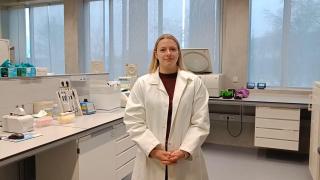Human brain organoids to study viral infections
Viral infection in (very young) children can be detrimental to their neurological health. The mechanisms of some viruses work very differently in children compared with adults, which is not well understood yet. The research group of Dasja Pajkrt studies viral infections in children from the clinic by using human-derived organoids. They focus on three groups of viruses that can severely affect children: picornaviruses (responsible for illnesses like meningo-encephalitis and sepsis), cytomegalovirus (which can cause severe disabilities in children born with this virus) and HIV. The human-derived organoids or multi-organ systems allow for detailed mechanistic analysis of the disease and possible treatments that can be brought back to the clinic.
Click on the link in the video to watch more or read the interview with Dasja here.
New

TPI.tv: improving science through animal-free innovations and research

Five simple tricks for making your own video for TPI.tv

Predictive computer models for protein binding
